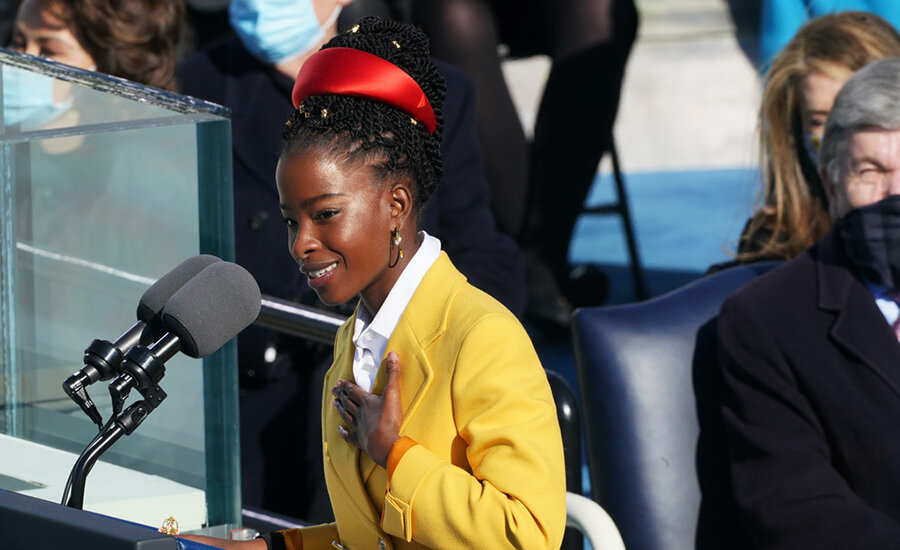Sha'Carri's Race: Runner sees racial undertones in outcome of Kamila Valieva doping scandal
By EEW Magazine News Editorial
A racial debate is brewing surrounding the International Olympic Committee’s decision to let a white Russian figure skater continue competing despite a failed doping test, since a Black American sprinter was banned from competing in the Olympics for a similar reason.
Sha’Carri Richardson, 21, who is Black, was favored to win a medal in the women’s 100 meters before being kicked off the U.S. team for the 2020 Summer Games in Tokyo after testing positive for marijuana.
Sha'Carri Richardson celebrates winning the Women's 100 Meter final on day 2 of the 2020 U.S. Olympic Track & Field Team Trials at Hayward Field on June 19, 2021 in Eugene, Oregon.(Patrick Smith / Getty Images)
On the other hand, we have Kamila Valieva, 15, who is white and earned her country a gold medal in the team competition last week. She tested positive for trimetazidine, a banned heart medication that can increase endurance, before the Beijing Games, but the outcome for her was different.
The I.O.C. elected to allow Valieva to continue competing in singles events which prompted Richardson to take to Twitter to sound off.
She asked for a “solid answer” about the difference between Valieva’s case and hers, pointing out that she, too, was expected to earn a medal. “The only difference I see is I’m a black young lady,” wrote the Nike sponsored athlete.
Russian figure skater Kamila Valieva pictured in action during a training session. (Credit: Getty)
Richardson also added that she was dealing with the trauma of her mother’s death when she tested positive for marijuana but received no leniency or consideration under the circumstances.
Now others are joining the conversation and asking, does she have a point? Is there a double standard based on race?
Jakayla Rice, an activist and cultural critic told EEW Magazine Online, “It sends the wrong message to allow a young, white athlete to compete after testing positive for a banned substance but penalize a young, Black athlete.”
Rice did note that the IOC's decision was upheld by the Court of Arbitration for Sport (CAS), as Valieva is considered a "Protected Person" since she is under 16 years of age. The World Anti-Doping Agency (WADA) installed the "Protected Person" clause to give younger athletes more protection due to their "lack of legal capacity." WADA criticized CAS' decision in a statement Monday.
“According to information received by WADA, the sample in Valieva’s case was not flagged by RUSADA as being a priority sample when it was received by the anti-doping laboratory in Stockholm, Sweden. This meant the laboratory did not know to fast-track the analysis of this sample,” said the organizations website.
“Despite some differences in the two cases, I think Sha’Carri Richardson has raised an important issue which is worth having and a conversation about and exploring further,” Rice added.
In its ruling, the I.O.C. said if Valieva wins a medal, no ceremony will be held until her case is resolved. Although the teen’s sample was taken on Dec. 25 at the Russian championships, the results were not confirmed until Feb. 7. By then, she had already competed in the team figure skating competition, Russian antidoping officials have said.
Marijuana is considered a performance-enhancing drug by the World Anti-Doping Agency and is banned on race days but is allowed outside of competition.
Richardson’s case has led to numerous calls to reconsider marijuana’s status as a banned substance, citing its legality in many states. As far as the racial debate goes, whether race played a factor in these two very different decisions depends on who you ask.
Dr. Michael Joyner, a physician and researcher on exercise physiology at the Mayo Clinic in Minnesota, told NPR that he was surprised at how weak the scientific evidence is for banning cannabis in athletes.
If you ask Richardson, she believes the contrasting results in these two cases have little or nothing to do with the substances involved.
"It’s all in the skin,” said Richardson.













